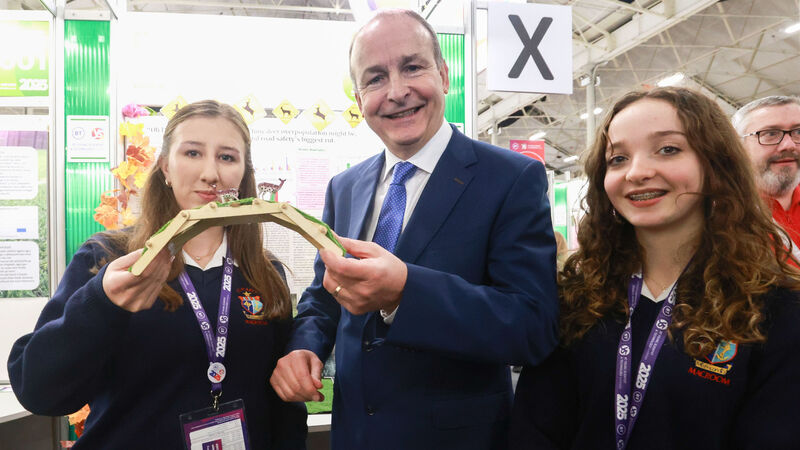AI, cat flaps and Taylor Swift: Young Scientist Expo shows future is in good hands

Tánaiste Micheál Martin at the BT Young Scientist Exhibition with students Ella White and Amy McCullough and their project 'Oh Deer', which examines the impact of deer overpopulation. Picture: Leah Farrell / RollingNews.ie
What do Taylor Swift, the height of a golf club, artificial intelligence and gumshields have in common?
All featured in projects at Thursday's BT Young Scientist and Technology Exhibition in the RDS.









